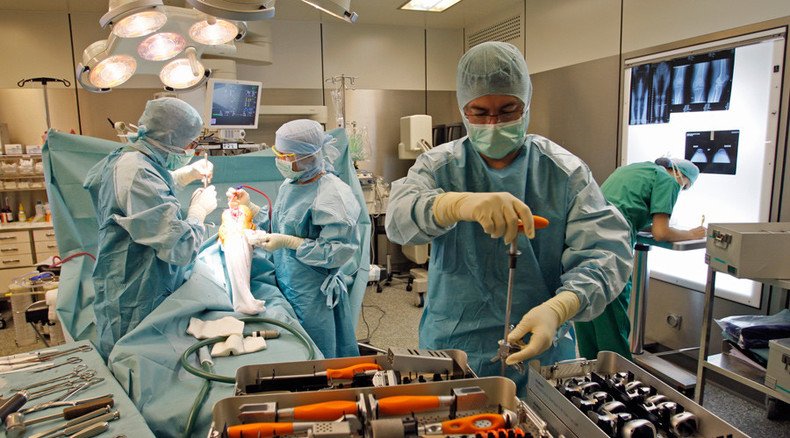Being nice to your doctor could literally save your life - study

If you ever feel like venting your pent-up aggression on your doctor, aside from common courtesy, a recent study says this would not be a very good idea. The paper states that it could mean you will get worse medical treatment than if you were nice to your doctor.
The experiment, which was jointly conducted by universities from Israel and the University of Florida, showed that rudeness makes people on the receing end perform below par. If your jobs involves cleaning the streets, or flipping hamburgers, this might not have too much of an impact, but if you are conducting a complicated operation, which could be the difference between life and death, then the consequences are obviously much greater.
However, it is not just members of the public who are at fault, as doctors can be just as guilty in their behavior towards nurses. If a physician shouts at a nurse, this can cause them to become stressed and experience lower job satisfaction, the Conversation reported.
READ MORE: Doctors 'traumatized' by health watchdog as suicide rates in profession increase
A simulation was conducted in Israel to see if rude physicians who had been the recipients of rudeness harmed the patients they were supposed to be caring for. The experiment consisted of 24 teams, made up of one doctor and two nurses. They had to diagnose the condition of a newly born child, whose condition was rapidly declining.
The baby had a condition called necrotizing entrocolitis (NEC), which leads to an inflammation of the intestines, which can quickly result in death if not treated urgently.
“We chose NEC for the simulation because it progresses so fast, and the proper treatment requires quick and accurate diagnosis and treatment. The effects of rudeness in this type of setting would be readily detectable,” the team stated, as cited by the Conversation.
READ MORE: Mentally ill UK doctors forgo treatment
To make things more interesting, before the simulation started, the teams were given a message from an experienced doctor. He told half of the teams that he was not impressed with the performance of medical professionals in the country in which this experiment was taking place, thus displaying a modicum of rudeness before the experiment had even taken place. The other 12 teams were not told anything before carrying out their work.
The results provided some interesting but alarming reading, as a straight forward insult from a third party “almost destroyed the performance of the participants,” with both their ability to diagnose and their performance skills suffering badly.
“This study shows that the consequences of simple negative social interactions can be catastrophic. Most people’s attitude toward rudeness is that it’s not that big a deal and people will ‘get over it.’ More and more, researchers are finding that this isn’t true – this study shows that in certain contexts the consequences of rudeness can be deadly,” a statement from the team concluded.












